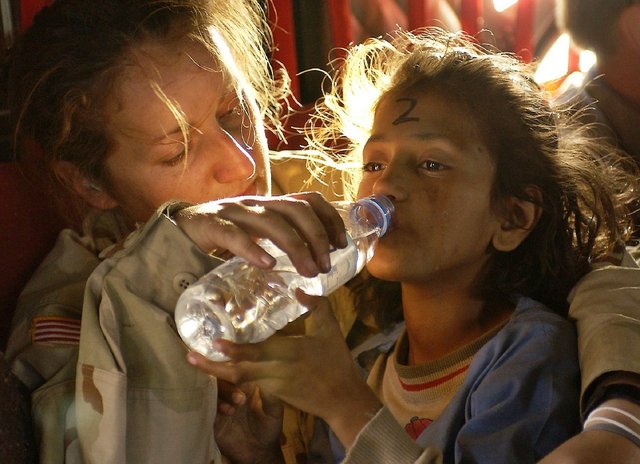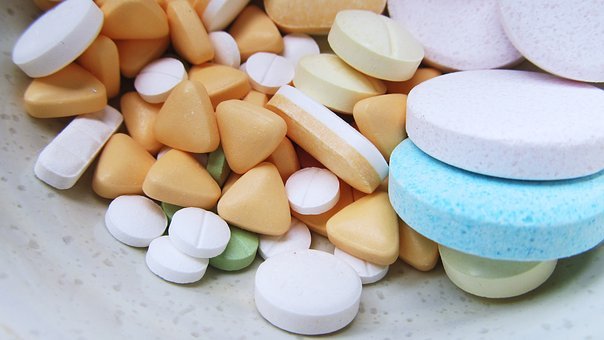Is RO Water Safe & Healthy To Drink?

Two-third of human body consists of water. 93% of our blood is water and 75% of our muscles are water. So there is no denying about the important role water has in our survival. But what exactly is water?
According to the place we live, we have access to several water sources like rivers, ponds, underground water, rain water, wells, hand-pumps etc. Natural water may be contaminated, hard or soft, drinkable or unhealthy too.
These days we also have various ways to clean our water by using chlorides, fluorides, boiling, ceramic candle filter, distillation, carbon-filtration, ozonation and reverse osmosis (R.O.). Out of all these, I’ve noticed that R.O. filtration has become the most popular way to purify our drinking water in last couple of decades.
Is R.O. the best way to obtain clean drinking water?
R.O. do has several advantages in filtering the water. But unfortunately, it over-filters the water than it's actually necessary to. Nature doesn’t mean to offer us absolutely pure water for drinking. Our bodies actually get several vital inorganic elements and micro-elements through water.
Not only water is meant to quench our thirst, it is also a source of nutrition. We get many inorganic elements like calcium, magnesium and trace elements like copper, manganese, cobalt etc. from our drinking water. Unfortunately, R.O. systems can’t differentiate between good and bad elements and filters out everything.
Today our farm soil is devoid of nutrients due to continuous over production and not enough recovery time; and our modern dietary habits are anything but healthy; so consuming optimally composed drinking water becomes more important than ever. We need to ingest calcium and magnesium from our drinking water for our long term health.
A report from WHO says:
Although drinking water is not the major source of our calcium and magnesium intake, the health significance of supplemental intake of these elements from drinking water may outweigh its nutritional contribution expressed as the proportion of the total daily intake of these elements. Even in industrialized countries, diets deficient in terms of the quantity of calcium and magnesium, may not be able to fully compensate for the absence of calcium and, in particular, magnesium, in drinking water.
Calcium is a substantial component of bones and teeth. Magnesium plays an important role as a cofactor and activator of more than 300 enzymatic reactions including glycolysis, ATP metabolism, transport of elements such as sodium, potassium, and calcium through membranes, synthesis of proteins and nucleic acids, neuromuscular excitability and muscle contraction.
R.O. Water is hungry. Don’t cook your food in it.
A few years back, I happened to attend a conference being addressed by an expert in this domain. I liked the term used by him for R.O. water as “hungry water”. He said that when every thing is removed from water, water gets hungry.
What he wanted to say was that we all know water is a very good solvent. And in its purest form, its solvency will reach its peak level. So if you drink it, instead of supplying essential trace elements to your body, it will dissolve some existing elements in your body while passing out of it, essentially leaving your body poorer with those excreted elements.
WHO report confirms this:
When used for cooking, soft water was found to cause substantial losses of all essential elements from food (vegetables, meat, cereals). Such losses may reach up to 60 % for magnesium and calcium or even more for some other microelements (e.g., copper 66 %, manganese 70 %, cobalt 86 %). In contrast, when hard water is used for cooking, the loss of these elements is much lower, and in some cases, an even higher calcium content was reported in food as a result of cooking
So the “hungry water” eats some nutrients from your food when used for cooking it …even before you could eat them. Therefore don’t use R.O. water in cooking, it’s unstable and will dissolve (extract) nutrients from food into it.
What’s the remedy?

It’s difficult to answer this question because it’s different for everyone. WHO, BIS , EPA etc. agencies recommend different TDS (Total Dissolved Solids) standards the range of which vary slightly though. But it’s clear that we should not consume de-mineralized bottled water that is being advertised as zero TDS. A TDS content lower than 10 or 20 mg/l is considered too low. We should target for a TDS level somewhere between 300 & 600 mg/l.
However if you are visiting a place where you don’t have easy access to uncontaminated water, it’s okay to drink low TDS water too. But we shouldn’t continue it for a long time.
In a test of 5 bottled water brands by Department of Consumer Affairs, Govt. of India, it concluded:
Bisleri, Kinley and Pure Drop failed to meet the microbiological requirements – hence they are not safe for consumption.
It found DJB Jal the top performer followed by Aquafina.
However, in the conference I had attended a few years back, we tested all the bottled water brands available in my city and almost all failed except one. So it’s best to stay away from all bottled water brands as far as possible.
Install a remineralizer
Now a days there are some RO brands in the market that are coming with a TDS adjuster which you can set according to your needs. But the brand we were using didn’t have any such option. So we called our RO consultant and got installed an external TDS adjuster to set the TDS level to 400.
Remineralizing the demineralised water, though seems a bit stupid, is the best available option to my knowledge. Domestic RO systems are already very inefficient as they waste 85% of the water to make just 15% of water drink worthy.
The ideal remin filter contains elemental magnesium. The water running across the magnesium will create hydrogen gas. Adding molecular hydrogen to water has been identified as contributing health benefits to more than 170 diseases by approximately 700 scientific studies and review papers.
If you’re really concern with your health, the best take away from this post for you is to make arrangements for making your drinking water hydrogen rich. This is the single most important health tip I can offer.
• What type of water do you regularly consume?
• Which filtration system do you consider the best?
Do let me know about you opinion on how to make healthy drinking water accessible and cheap for us.

It's true RO water is not good for the body since it's depleted in everything. That's why I also take multi-mineral supplements to replace the minerals I've lost. They also make these mineral drops you can put in water to remineralize it. Do you recommend that? Is it better drinking RO water than tap water?
Personally, I prefer natural sources wherever possible. At my place, tap water is not an option. And ground water is very hard. So I depend on R.O. water with TDS adjustments.
Does the body really benefit as much from the minerals in water? Isn't it a fair low concentration?
It's said that it does benefit. In fact, we installed the TDS adjuster after some family members got deficient in some minerals.. After that, it got fine.
I use water by municipality,there are some issues with also but we manage it out level. Boiled water is better than R O.
If you can use the boiled water, it's good. We had tried it for some time. But boiling a hell lot of water and then cooling it down was a lot of work esp. when there were many visitors.
I have been using RO water for cooking. Tap water is not that good even after being boiled. So far, I don't think there is any problem, yet.
Why do you think tap water isn't goof even after boiling?
You can assure the required TDS levels in your RO water. It may take a long time for deficiency to get noticed. It's up to you to make use of the available information. You've been warned ...😉
This post has received a 8.76 % upvote from @boomerang.
Great post. It is a information healthing very interesting. Thank you for shared it with us
You're welcome!
To the question in your title, my Magic 8-Ball says:
Hi! I'm a bot, and this answer was posted automatically. Check this post out for more information.
To listen to the audio version of this article click on the play image.

Brought to you by @tts. If you find it useful please consider upvoting this reply.
water is so important for us yet we have it so little.
Conserve water
True, we are all evolved fishes 😊